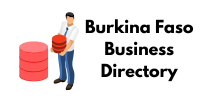CRM Tags: Think of CRM tags as highly flexible, customizable labels or keywords that you can attach to individual contact records within your CRM system. They are metadata, acting as internal organizational tools that describe specific attributes, behaviors, interests, or stages of a contact. Tags are typically appli manually or automatically bas on actions (e.g., “download ebook,” “attend webinar,” “VIP customer,” “interest in Product X”). Their primary function is to enrich contact profiles with specific, granular details.
Email Segments: Email segments, on the other hand, are dynamic or static groupings of subscribers from your email list, defin by specific criteria. These criteria can be bas on data points from your email platform (e.g., “open last 3 brazil email list emails,” “click link A,” “unengag subscribers”) or, critically, they can leverage the rich data, including tags, pull from your CRM. Segments are the actual groups to which you send target email campaigns.
Granularity and Flexibility
CRM tags offer a much higher degree of granularity and flexibility than typical email segments. You can apply multiple tags to a single contact, allowing for a multifacet understanding of that individual. For example, a customer might be tagg as “purchas Product A,” “attend webinar,” “loyal customer,” and “lives in California.” This intricate tagging allows for highly specific categorization of individual records within the CRM.
Email segments, while powerful for targeting, are often broader groupings. They are the result of filtering your contact database bas on one austria business directory or more criteria, which can include CRM tags. A segment might be “all contacts tagg ‘VIP customer’ who haven’t purchas in 6 months” or “all contacts in California who download an ebook.” The segment defines the group, while the tags provide the underlying data points that enable that definition.
Purpose and Application
The primary purpose of CRM tags is internal organization, detail profiling, and cross-departmental insights. Sales teams can use tags to quickly identify hot leads, customer service can use them to understand past interactions, and marketing can use them to build sophisticat segments. Tags facilitate a deeper understanding of each customer’s journey and attributes within the CRM system.
Email segments’ main purpose is external communication and campaign targeting. They allow you to send highly relevant messages to specific how the world of seo and online marketing is changing subsets of your audience, improving engagement, conversion rates, and overall campaign effectiveness. Without segmentation, email marketing would be a generic, one-size-fits-all approach, leading to lower open rates and higher unsubscribe rates.
Integration and Synergy
The true power emerges when CRM tags and email segments work in synergy. Your CRM acts as the central hub for all customer data, and tags are the labels that make that data actionable. By integrating your CRM with your email marketing platform, you can use the detail information and tags from your CRM to create highly refin and dynamic email segments.
For instance, a tag like “express interest in product launch” in your CRM can automatically add a contact to an “early access product updates” email segment. When a customer’s CRM record is updat with a new tag (e.g., “complet training module”), they can be automatically mov into a different email segment (e.g., “advanc user tips”). This seamless flow of information ensures that your email communications are always relevant and timely.
Strategic Implications
Leveraging both CRM tags and email segments strategically leads to hyper-personalization, improv customer experiences, and increas ROI. By meticulously tagging your contacts in your CRM, you build rich customer profiles that inform highly target email campaigns. This approach minimizes irrelevant messaging, strengthens customer relationships, and maximizes the impact of every email sent. Ultimately, CRM tags provide the intelligent foundation, while email segments are the powerful vehicles for delivering personaliz communication at scale.

